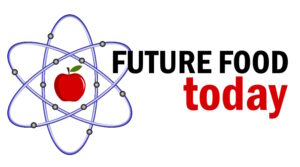Cultivated meat and seafood can soon be taste tested under limited conditions in The Netherlands. The Dutch government, in collaboration with cultivated meat producers Meatable and Mosa Meat and sector representative HollandBIO, successfully created a ‘code of practice’ that would make tastings possible in controlled environments.
The agreement makes the Netherlands the first country in the European Union to make pre-approval tastings of food grown directly from animal cells possible, even before an EU novel food approval. It follows on the heels of the government’s ‘National Growth Fund,’ committing €60M to build a cellular agriculture ecosystem to make the Netherlands a global hub for the burgeoning technology.
The organization created to implement the National Growth Fund plan, Cellular Agriculture Netherlands, will have responsibility for implementing the code of practice, including hiring a panel of experts to evaluate requests by companies to conduct tastings of cultivated meat and seafood.
The code of practice was created after an intervention by the Dutch House of Representatives in 2022.
Krijn de Nood, CEO at Meatable, said: “This is great news for the Netherlands. We know cultivated meat can significantly help reduce climate impact. By enabling the tasting of cultivated meat, The Netherlands maintains its pioneering role in Europe and beyond. For Meatable, this means that we can allow consumers to taste and experience our products, and make our products even better with their feedback. Our goal is to make tasty cultivated meat that is indistinguishable from traditional meat available to everyone, without harming people, animals or our planet. This development brings that goal closer. We thank the ministries for their constructive collaboration and look forward to invite the first people to try our sausages, dumplings, and pulled pork!”
Maarten Bosch, CEO of Mosa Meat, added: “This is a great achievement for the Dutch government and another proof point that the Netherlands is a global leader in agriculture and food innovation. We thank all 123 members of the Tweede Kamer who voted in favor of finding a way to make this possible and Minister Kuipers, Minister Adema and their teams for being professional and collaborative in getting it done. Mosa Meat will use these controlled tastings to gather invaluable feedback on our products and to educate key stakeholders about the role cellular agriculture can play in helping Europe meet our food sovereignty and sustainability goals.”
About Meatable
Meatable is a Dutch food company, aiming to deliver, at scale, cultivated meat that looks like, tastes like, and has the nutritional profile of traditional meat. Its proprietary opti-ox technology enables Meatable to produce meat rapidly, sustainably, and without harming animals. Founded in 2018 by Krijn de Nood (CEO), Daan Luining (CTO), and Mark Kotter (principal inventor of opti-ox technology), Meatable has brought together a team of more than 90 experts with knowledge in fields including molecular biology, chemistry, tissue engineering, bioprocess development, food safety, and food science to create the new natural meat.
About Mosa Meat
Mosa Meat is a global food technology company pioneering a cleaner, kinder way of making real beef. Its founders introduced the world’s first cultivated beef hamburger in 2013, by growing it directly from cow cells. Founded in 2016, Mosa Meat is now scaling up production of beef in a way that is better for people, animals, and the planet.
ABOUT CULTIVATED MEAT
According to an independent and peer-reviewed Life Cycle Analysis, cultivated meat production is projected to produce up to 93% fewer greenhouse gasses, use 95% less land and 78% less water when compared to industrial meat production. Cultivated meat production offers the opportunity to use the spare land for re-wilding habitats and regenerative farming practices, which would naturally reduce emissions or for producing more food for people. Moreover, the automated process through which cultivated meat is produced, and the sterile environment of its manufacturing, will eliminate or drastically reduce the use of antibiotics and the risk for pathogens, contaminants, and foodborne illnesses associated with concentrated and intensive animal farming.
